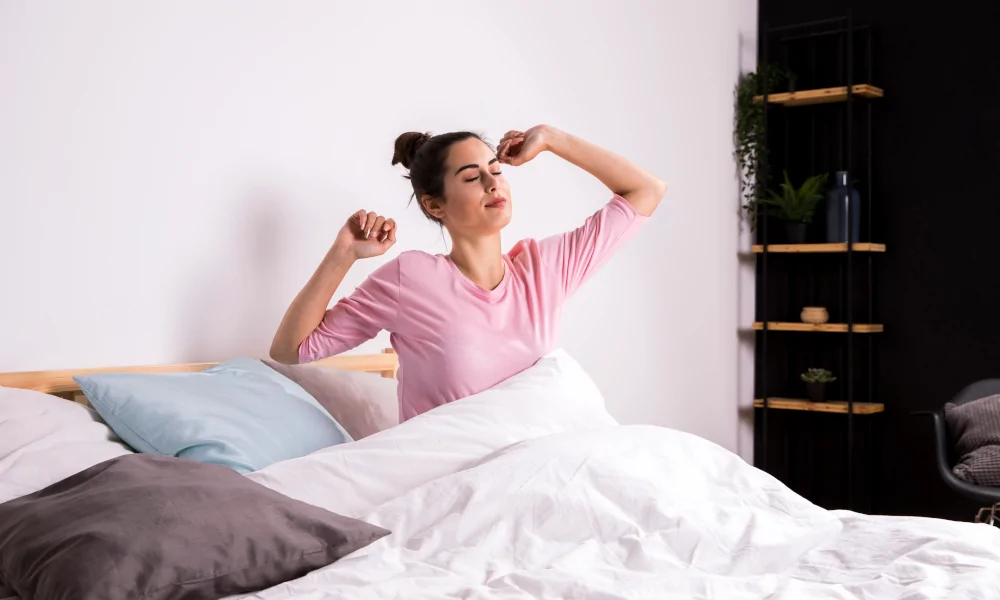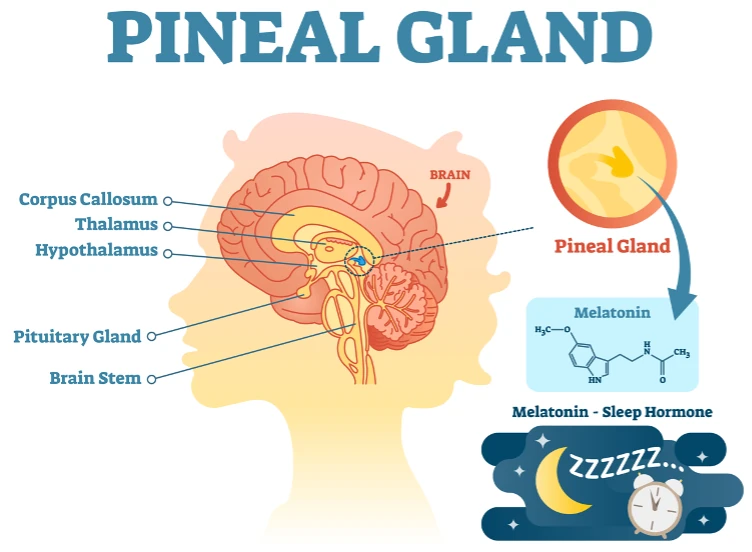Inadequate sleep can have far-reaching consequences, impacting productivity, cognitive function, and overall health. From decreased focus and impaired decision-making to an increased risk of chronic conditions like diabetes and cardiovascular disease, the impact of poor sleep quality is profound. Given the significance of this issue, individuals must prioritise strategies that can help them wake up feeling refreshed and energised. This article will discuss tips for improving your morning wake-ups and help you start your day with more energy and focus.
Understanding the reason: why can’t I wake up in the morning?
The difficulty in waking up can stem from a variety of underlying factors. Sleep disorders, such as sleep apnea or insomnia, can significantly disrupt sleep quality and make it challenging to feel alert upon waking. Circadian rhythm disturbances, where your body’s internal clock is out of sync with your sleep-wake cycle, can also contribute to morning grogginess. Lifestyle habits, like irregular sleep schedules, excessive screen time before bed, and high-stress levels, can further exacerbate the issue.
Understanding the root cause of your morning struggles is the first step towards finding a solution. By identifying and addressing the specific factors affecting your sleep, you can take targeted steps to improve your ability to wake up feeling refreshed.
Optimising your sleep hygiene
Sleep hygiene refers to the practices and habits that promote quality sleep. High-quality sleep is essential for feeling refreshed and energised throughout the day. By implementing healthy sleep hygiene practices, you can improve the quality of your sleep and make it easier to wake up in the morning.
Consistent sleep schedule: Maintaining a regular sleep-wake cycle, even on weekends, helps to synchronise your body’s internal clock, making it easier to fall asleep and wake up at your desired times. Going to bed and waking up at the same time every day, even if it’s just a few days a week, can help regulate your circadian rhythm and improve the quality of your sleep.
Creating a conducive sleep environment: Ensure your bedroom is dark, cool, and quiet to improve sleep quality and facilitate a smooth transition into wakefulness. Blackout curtains or an eye mask can block unwanted light, while a comfortable mattress and pillows support a restful night’s sleep. When you wake up in a room optimised for sleep, you will feel more rested and find it easier to start your day.
Limiting screen time before bed: It is crucial to avoid blue-light-emitting devices, such as smartphones and tablets, before bedtime. This type of light can disrupt the production of melatonin, the sleep-regulating hormone essential for restful sleep.
Managing stress and anxiety: High levels of stress and anxiety can significantly impact sleep quality, making it more difficult to wake up in the morning. Stress-reducing activities like meditation and deep breathing exercises calm the mind and body, leading to better sleep. Additionally, managing anxiety through cognitive-behavioural therapy or other techniques can also improve sleep.
Regular exercise and diet: Incorporating regular exercise and a balanced diet can also contribute to better sleep and easier morning wake-ups. Physical activity helps you fall asleep faster, and a diet rich in sleep-promoting nutrients like tryptophan and magnesium supports healthy sleep patterns.
How morning light can help
The body’s internal clock, known as the circadian rhythm, is heavily influenced by light exposure. Morning light exposure plays a vital role in regulating this system by suppressing melatonin production, enhancing alertness and mood, and aligning your circadian rhythm. This process makes it easier to wake up and feel refreshed in the morning. Exposure to bright light in the morning increases the release of cortisol, the hormone that helps us feel awake and suppresses melatonin, the sleep-inducing hormone.
To maximise the benefits of morning light, make it a habit to open your curtains or blinds as soon as you wake up, allowing natural sunlight to enter your sleeping environment. If natural light is limited, consider using a light therapy lamp or alarm clock that simulates dawn. These devices can mimic the effects of natural light, helping to regulate your body’s internal clock. By consistently exposing yourself to bright light in the morning, you can improve your mood, increase alertness, and enhance cognitive function, creating an environment more conducive to easy, refreshing wake-ups.
Nailing your wake-up routine
Traditional alarm clocks can interrupt your sleep and leave you feeling groggy because they wake you up abruptly. This sudden awakening can negatively affect your sleep quality and overall well-being. A more gradual wake-up process is essential for a smoother and more pleasant start to your day. Consider alternative wake-up methods, such as light alarm clocks or natural wake-up systems, which simulate a natural sunrise by gradually increasing light and sound levels.
This gentle approach to waking up can reduce the feeling of being jolted awake, leading to a more peaceful and refreshed start to the day. Some systems even incorporate calming nature sounds or soothing music to further enhance the experience. Progressive wake-up alarms that combine light, sound, and vibration can also provide a gentle transition from sleep to wakefulness. By allowing your body to transition slowly from sleep to wakefulness, you can enhance alertness and feel refreshed throughout the day.
Morning routine and making good habits
A consistent morning routine can significantly enhance your day and overall well-being. Starting with hydration, drinking water as soon as you wake up replenishes fluids lost overnight. Complement this with light exercise or stretching to stimulate circulation and increase wakefulness. Engaging in mindfulness practices like meditation or yoga calms your mind and body, setting a focused and positive tone for the day.
A nutritious breakfast further fuels your energy levels, providing the substances needed to maintain alertness throughout the day. Foods like oatmeal, eggs, and berries can provide a sustained release of energy and essential vitamins and minerals to fuel your body and mind. Experimenting with different routines helps to identify what best suits your needs, making it easier to establish these habits over time. Additionally, brief power naps of 10 to 30 minutes can enhance cognitive function and alertness without disrupting your night’s sleep.
Waking up in the morning can be a breeze
Waking up in the morning can be effortless with the right strategies. Consistent sleep hygiene and gradual wake-up techniques are crucial for improving morning alertness and overall well-being. Key approaches include addressing underlying factors, optimising sleep habits, using morning light, implementing gentle wake-up routines, and incorporating power naps. These methods can transform your mornings, leading to better mood, cognitive function, and physical health. Remember, finding the right combination of strategies may take time, but it significantly improves the quality of life.If you’re still struggling to wake up easily despite implementing these strategies, it’s time to seek expert help. As an experienced sleep specialist, we work with individuals to provide tailored solutions to their sleep problems. Don’t let persistent sleep issues keep you from enjoying life to the fullest. Please get in touch should you require any assistance or further information.










